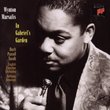| All Artists: Frederic Chopin, Sergey Rachmaninov, Hélène Grimaud Title: Hélène Grimaud plays Chopin & Rachmaninov Members Wishing: 0 Total Copies: 0 Label: Deutsche Grammophon Release Date: 3/8/2005 Genre: Classical Styles: Chamber Music, Forms & Genres, Sonatas, Historical Periods, Classical (c.1770-1830), Modern, 20th, & 21st Century, Romantic (c.1820-1910) Number of Discs: 1 SwapaCD Credits: 1 UPC: 028947753254 |
Search - Frederic Chopin, Sergey Rachmaninov, Hélène Grimaud :: Hélène Grimaud plays Chopin & Rachmaninov
 | Frederic Chopin, Sergey Rachmaninov, Hélène Grimaud Hélène Grimaud plays Chopin & Rachmaninov Genre: Classical
Hélène Grimaud's releases on DG have each been built around a "concept." Here, it's death and transcendence. The philosophically bent can get Grimaud's explanation in the booklet notes, while the musical among us... more » |
Larger Image |
CD DetailsSynopsis
Amazon.com Hélène Grimaud's releases on DG have each been built around a "concept." Here, it's death and transcendence. The philosophically bent can get Grimaud's explanation in the booklet notes, while the musical among us can just listen to a stimulating program of standard repertory freshened by one of today's outstanding younger pianists. In the Chopin Sonata, Grimaud's volatile first movement and delicately colorful finale provide the tone and resolution required by both composer and her own philosophical outlook. The latter, though, means a dry-eyed Funeral March shorn of any trace of sentimentality yet not lacking power, more a contemplation of mourning rather than the thing itself. The Rachmaninov Sonata is his 1931 revision with Grimaud's restoration of sections of the 1913 original. As in the Chopin, Grimaud's gorgeous tone and the clarity of her articulation help make this an outstanding performance. The program closes with a pair of Chopin's most affecting works, the Berceuse and the Barcarolle, both beautifully played. --Dan Davis Similarly Requested CDs
|
CD ReviewsUnfocused Effort Jeffrey Jones | Northern California, USA | 04/17/2005 (4 out of 5 stars) "The concept of this album is an interesting one on the surface. Chopin's Second Sonata, which contains the world's most famous funeral march, is put alongside Rachmaninoff's Second Sonata. Each is in the same key, and they run to about the same length. The rather short CD is filled out with two popular late works by Chopin, the Berceuse and the Barcarolle. This is familiar territory for any pianist, but the arrangement is interesting. However, this does not mean that the effort is completely successful. To put it as politely as possible, Grimaud is not a delicate, "pretty" kind of pianist. Anyone looking for that would be better served by Vasary, for example. Grimaud's sound is large; she uses dynamics which would work very well in a concert hall. She is more faithful to the score than many, and she plays accurately and powerfully. On the flip side, she can occasionally sound harsh, but the sound is never ugly, as it has been in the past. Compared with the three recent recordings of the Chopin sonata I've heard (Pompa-Baldi at the Cliburn, Moravec, and this one), this is the most exciting and most accurate, but it seems less organic and flowing than many other readings. The Rachmaninoff is a straighter imitation of a poor performance (the 1980 Horowitz recording, taken at the nadir of his career), and it has too much volume and too little impact. The Chopin Berceuse is serious and rather strange, as Grimaud suddenly and inexplicably gets very loud and passionate at a time where the opposite is expected. I wouldn't want to be the baby trying to fall asleep to this. The Barcarolle, too, is too intense. Grimaud is anxious in the languorous, elevated atmosphere of this music, and the result is too Germanic rather than Italianate. Although my tone may seem negative based on the above paragraph, I enjoyed this CD and I can recommend it. There are better recordings available of all of this music, though. For the Chopin Sonata, there is very little to match Moravec's recent disc, and for the Barcarolle, Sofronitzky's freely improvisatory manner carries the day. It is harder to make a recommendation of the Rachmaninoff sonata, because there are more poor performances of that much-abused piece than I can count. I certainly haven't found a CD that makes me love the piece." Deep understanding Stewart W. Wilson | Concord, MA USA | 06/18/2005 (5 out of 5 stars) "Helene Grimaud plays the structure of the piece. In this she is very unusual. In our music lessons, we learned about phrases--how that arc over some notes means to begin anew, to rise in strength, then fall back again. And maybe even how larger phrases contain smaller ones. And we remember how difficult it was to play the phrases, especially when they contained other ones. Grimaud's phrasing is incomparable. At every moment there are several phrases going: the immediate one, and all the levels above it. She tells us not only what is now, but what is ending and what is to come. Her playing has the extremely rare quality of anticipation, so that even in pieces new to us, we feel them developing, and in familiar pieces we revel in the hints and beginnings of the next idea. Sometimes the phrases are borne by different voices, and it can seem that more than one person is playing, so clear is Grimaud's articulation. She has said that she practices mainly by studying the score. This must be the secret of her music's almost incredible three-dimensionality. In the great Chopin sonata on this record, Helene Grimaud combines her structural understanding with emotional strength and universality to achieve an interpretation that to me is substantially new and compelling. As she says in the notes, the sonata is about death, and its first movement, which she says is the heart of the work, "reflects the revolt and supplications of a tragic struggle against hopeless destiny". This seems to me exactly how she plays it. The whole movement--the phrase of the whole--is played with a driving, passionate intensity, never letting up, never denying, but still containing and letting breathe the beautiful "supplication" and noble "revolt" sub-phrases that contrast with death's relentlessly returning tocsin. The overall structure is constantly present and reinforced. Grimaud never indulges in idiosyncrasy or feeling for its own sake; she seems intent on letting the composer's idea and purpose come through, and does so using her enormous understanding and expressive power, aided, I must say, by the fabulous sound of her piano. The rest of the sonata is equally rewarding. I would just mention how in the "Funeral March" movement, the tempo and dynamics of the march sections are almost utterly steady--surprisingly, one taps one's foot--removing all personal sentiment, as though we are seeing an historical black-and-white film. The sense of distance is complemented by the sweet, ethereal passages that interweave the march; Grimaud plays them limpidly and wonderfully slowly. The other sonata on this disc, Rachmaninov's 2nd, is new to me and I am still "learning it" from the pianist. But her playing displays the same structural insight, anticipation, and voicing that I have mentioned, underlying her characteristically beautiful expression both in the strong passages and the gentle ones. I have all of her CDs, and a very special quality, evident here, is Grimaud's ability to be interesting wherever she is in a piece. There are no dead spots or contentless transitions: every passage always has something going on that holds interest, even fascination. In a sense she is a miniaturist in her immediate playing--I think that is the result of her deep grasp of what the piece, at every point, is saying. The Berceuse in D flat and Barcarolle in F sharp, familiar to every listener, complete this program of Helene Grimaud's. They are beautifully rendered--the Berceuse with exceptional tenderness, the Barcarolle in all its unique originality. I give this recording five stars as a marvelous example of the work of a still relatively unknown pianist of exceptional quality whose approach and understanding and expressive power will, I believe, soon bring her recognition as one of the greatest pianists." Wonderfully Played. Imaginative, with Feeling William C. Nee | Tustin, CA USA | 09/22/2006 (5 out of 5 stars) "I'm no critic here, I won't even attempt it. But I love Chopin, and Helene Grimaud's playing is masterful. I have read the knowledgeable reviews from other's who rate this poorly. It's surprising that their ears are so narrow and their minds so tight, full of their own genius.
This is wonderfully played. A must have. The Berceuse I have played for hours and it's magical intepretation stirs me each time. The Sonata No. 2, is simply amazing. I'm not even a Rachmanioff fan, but her playing makes me want to learn his music. Buy this and expand your ears, mind, and emotions. As for the critics, sorry you didn't enjoy this. I think you missed something called listening to creative artistry and enjoying Chopin." |

 Track Listings (9) - Disc #1
Track Listings (9) - Disc #1








